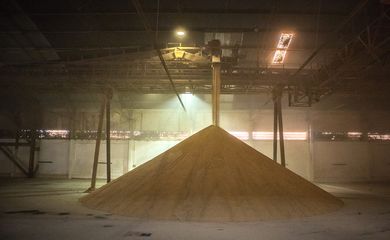Brazilian economy drops 0.1% in the third quarter of this year

The Gross Domestic Product (GDP), the sum of all goods and services produced in the country, dropped 0.1% in the third quarter of this year, compared to the previous quarter. The GDP, in the period, totaled BRL 2.2 trillion. The data was released today (2) by the Brazilian Institute of Geography and Statistics (IBGE).

In comparison with the third quarter of 2020, however, there was an increase of 4%. GDP also accumulates high in the 12-month period (3.9%).
Moving from the second to the third quarter of this year, the fall was driven by the agricultural sector, which had losses of 8%. According to researcher Rebeca Palis, from IBGE, the result was influenced by the end of the soy harvest, which is more concentrated in the first half of the year.
“Since it is the main Brazilian commodity , agricultural production tends to be lower as of the second half of the year. In addition, agriculture comes from a high basis of comparison, as it was the activity that grew the most during the pandemic period and, for this year, the perspectives were not so positive, in a year of negative bienniality for coffee and with the occurrence adverse climatic factors at the time of planting some grains”, says the researcher.
The industry remained stable in the period. On the other hand, the 1.1% rise in the services sector prevented a greater decline in GDP in the third quarter. Construction grew 3.9% and avoided a fall in the industry.
The rise in services was driven by other service activities (4.4%), information and communication (2.4%), transport, storage and mail (1.2%) and administration, defense, health and public education and security social (0.8%). Real estate activities remained stable, while financial, insurance and related services and trade activities dropped by 0.5% and 0.4%, respectively.
From the perspective of demand, gross fixed capital formation, that is, investments, dropped 0.1%. Household consumption grew 0.9%, while government consumption rose 0.8%.
In the external sector, there were decreases in exports (-9.8%) and imports (-8.3%) of goods and services.
The IBGE also released a review of GDP performance in 2020. The 4.1% drop rate, reported earlier, was corrected for a decrease of 3.9%.
Text translated using artificial intelligence.




